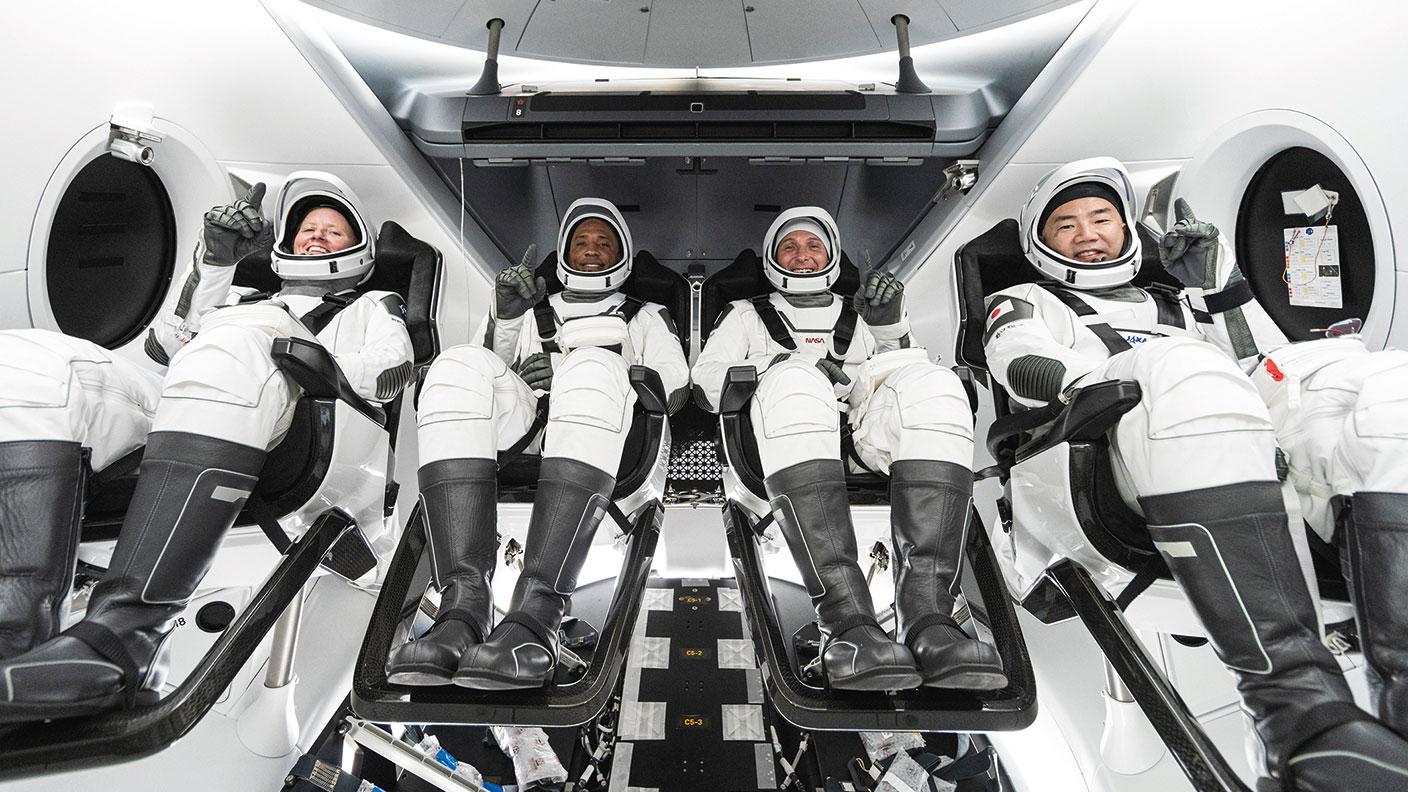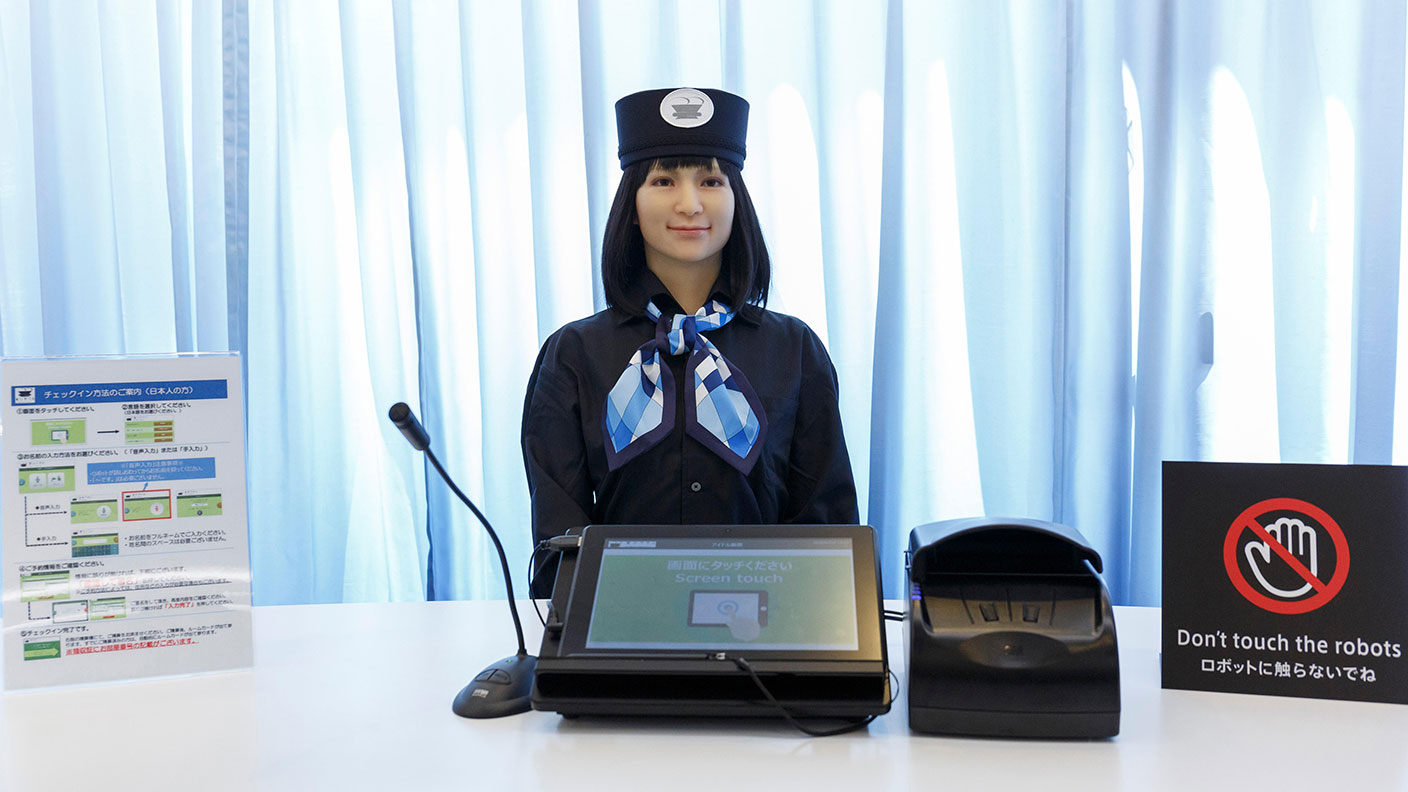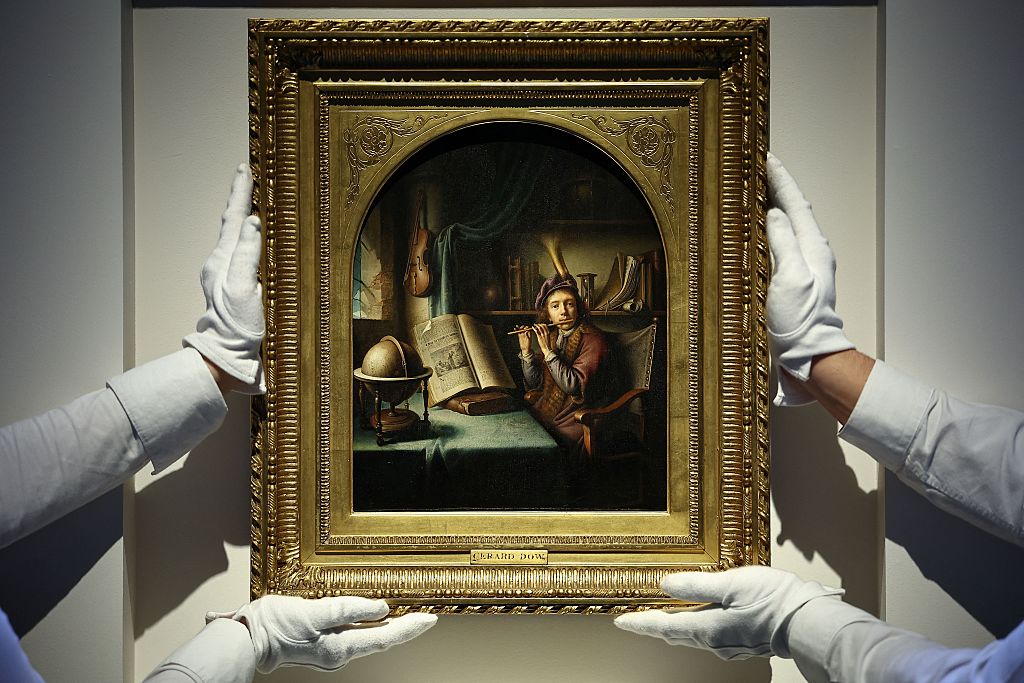A trip to the International Space Station
By 2040 – or maybe even sooner – out-of-this-world holidays will be a reality, says Chris Carter


Get the latest financial news, insights and expert analysis from our award-winning MoneyWeek team, to help you understand what really matters when it comes to your finances.
You are now subscribed
Your newsletter sign-up was successful
Want to add more newsletters?

Twice daily
MoneyWeek
Get the latest financial news, insights and expert analysis from our award-winning MoneyWeek team, to help you understand what really matters when it comes to your finances.

Four times a week
Look After My Bills
Sign up to our free money-saving newsletter, filled with the latest news and expert advice to help you find the best tips and deals for managing your bills. Start saving today!
It’s the year 2040, and you decide to go on holiday. While you’re still sitting in your smart home, a digital avatar will appear as your travel agent, predicts Caroline Bremner, head of travel research at Euromonitor International, in a recent paper entitled Travel 2040. The avatar will use “emotion recognition software to match individual preferences with travel opportunities”. You’ll even get a virtual taster of what to expect before committing. The effects on climate change, energy conservation and waste prevention will all be factors in your decision.
So, you’ve decided, and told the digital travel agent where you want to go, and the day of departure rolls around. Your bags are packed and it’s time to leave for the airport. “You hop on a four-passenger air taxi over the city to the airport where a supersonic aircraft is waiting to whisk you in a few hours across oceans and continents.” At least, that’s the vision of French aerospace and defence group Thales.
But first you have to get through the all-too-familiar rigmarole of airport security. You may still be required to carry a physical passport for legal reasons, futurist Ray Hammond predicted in a report last year, called The World in 2040, for Allianz Partners. But otherwise, “by 2040, your face will be your passport and your boarding pass”, with iris scans and finger-print recognition systems there as back-ups. And there will be no waiting while the person in front of you dives into their bags for the laptop they forgot to take out. “Waiting times will be substantially reduced.” Once through, artificially intelligent (AI) digital assistants will direct you to airport lounges, bars, restaurants and shops.
MoneyWeek
Subscribe to MoneyWeek today and get your first six magazine issues absolutely FREE

Sign up to Money Morning
Don't miss the latest investment and personal finances news, market analysis, plus money-saving tips with our free twice-daily newsletter
Don't miss the latest investment and personal finances news, market analysis, plus money-saving tips with our free twice-daily newsletter
Alexa is your pilot today
Beyond the gate, “your ‘pilot’ might be in the cockpit – but might also be on the ground supervising the flight through data and information in the cloud”, says Thales. As you recline in your seat and close your eyes, you will hear “only a muffled sonic boom” as the plane breaks the sound barrier.
European aircraft maker Airbus offers a slightly different take. It sees the near future of flight as being a low-emissions one. If the cost of hydrogen were to come down (possibly with government investment), “zero-emission aviation [would be] commercially viable in the 2030s”, says Glenn Llewellyn, vice-president of zero-emissions technology at Airbus. Either way, aeroplanes will be smaller and, in the case of supersonic jets, much faster than today. In the air, economy passengers will put on their virtual -reality headsets (see page 42), while premium passengers will relax in multi-sensory “pods”, says Hammond.

You’ve landed and left the airport. Thanks to augmented reality (AR), whereby information is overlaid on a real-world view on your smartphone or the lenses on your sunglasses, finding your way at your destination is a breeze. Even if you do need to ask for directions, translation apps and earpieces will make foreign languages intelligible – something of the latter already exists in the form of Google Pixel Buds. At the hotel, you “will be greeted by an AI avatar concierge”, says Bremner. That’s not far-fetched. The original Henn na hotel in Nagasaki has employed robot workers (above) since 2015, although it reportedly had to fire half of them for being lousy at their jobs. Still, by 2040 technology will have moved on. Your bags will be delivered to your room and a voice-activated digital assistant will be on hand, much like Amazon’s Alexa is now, to do everything from turning on the TV to running you a bath.
The sky is no limit
And there may be no need to stick to holidaying on Earth. Next Saturday, Elon Musk’s SpaceX is scheduled to carry out the first commercial mission with Nasa to carry astronauts to the International Space Station (ISS) for a standard crew rotation. If SpaceX can carry astronauts, then why not tourists? SpaceX announced in March that it was aiming to send three tourists to the ISS by late next year for a ten-day stay and, according to The New York Times, one person has already signed up for the ride, at a cost thought to be around $55m. A “space hotel” is also on the cards. The Gateway Foundation, a private company, is planning to build one as part of its Von Braun Rotating Space Station sometime over the next decade.
Get the latest financial news, insights and expert analysis from our award-winning MoneyWeek team, to help you understand what really matters when it comes to your finances.

-
 Should you buy an active ETF?
Should you buy an active ETF?ETFs are often mischaracterised as passive products, but they can be a convenient way to add active management to your portfolio
-
 Power up your pension before 5 April – easy ways to save before the tax year end
Power up your pension before 5 April – easy ways to save before the tax year endWith the end of the tax year looming, pension savers currently have a window to review and maximise what’s going into their retirement funds – we look at how
-
 Adventures in Saudi Arabia
Adventures in Saudi ArabiaTravel The kingdom of Saudi Arabia in the Middle East is rich in undiscovered natural beauty. Get there before everybody else does, says Merryn Somerset Webb
-
 Review: Constance Moofushi and Halaveli – respite in the Maldives
Review: Constance Moofushi and Halaveli – respite in the MaldivesTravel The Constance resorts of Moofushi and Halaveli on two idyllic islands in the Maldives offer two wonderful ways to unwind
-
 Affordable Art Fair: The art fair for beginners
Affordable Art Fair: The art fair for beginnersChris Carter talks to the Affordable Art Fair’s Hugo Barclay about how to start collecting art, the dos and don’ts, and more
-
 Review: Gundari, a luxury hotel in the Greek island of Folegandros
Review: Gundari, a luxury hotel in the Greek island of FolegandrosNicole García Mérida stayed at Gundari, a luxurious hotel on Folegandros, one of the lesser-known islands in the southern Cyclades in Greece
-
 Fine-art market sees buyers return
Fine-art market sees buyers returnWealthy bidders returned to the fine-art market last summer, amid rising demand from younger buyers. What does this mean for 2026?
-
 Review: Castiglion del Bosco, A Rosewood Hotel – a Tuscan rural idyll
Review: Castiglion del Bosco, A Rosewood Hotel – a Tuscan rural idyllTravel Play golf, drink exquisite wine and eat good food at Castiglion del Bosco, A Rosewood Hotel, all within the stunning Val d’Orcia National Park in Tuscany
-
 Review: A cultural tour of North India
Review: A cultural tour of North IndiaTravel Jessica Sheldon explores North India's food and art scene from three luxurious Leela Palace hotels in New Delhi, Jaipur and Udaipur
-
 The best luxury saunas, spas and icy plunges
The best luxury saunas, spas and icy plungesRestore your mind and body with luxury fire and ice experiences, from warming saunas to icy plunges